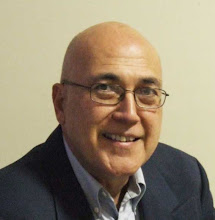A friend sent me an article by Christopher Pearson (The Australian) which commented on the ignorance of certain protagonists involved in this issue. This got me thinking more on the issue
Allow me to make a few points based on that article and another one in The Australian.
Pearson pointed out that Cardinal Pell's admonition to the NSW pollies was "essentially a collegial response to contentious legislation rushed into the NSW parliament." He added that "Sydney's Anglican Archbishop Phillip Jensen condemned the bill just as forcefully as Pell did...He also warned that, if passed, the bill would 'enshrine in law the corrupt view that embryos used are not morally significant or important.' Despite that, Jensen was left unscathed, on this occasion at least, and almost all the media attention was on the cardinal."
I wonder why.
The cardinal seems to be a favourite target of what Pearson labelled as modernists and ultra-liberals. He commented that these people were "appalled at the idea of a bishop taking orthodoxy seriously and expecting the people responsible for the formation of young catholics to do likewise."
The cardinal is obviously an easy target. And, any chance to have a swipe at the Catholic Church is always a good thing for these people.
The focus is on whether the moral authority of the church is correct on this issue. If the church has a right to raise this matter, if it can influence thinking based on moral and faith issues.
What about the whole issue of the morality of the stem cell research? The members of parliament were allowed to vote guided by their conscience. A point I won't cover here, but this is well covered by Pearson's article.
As Catholics, we believe that life begins at conception. It doesn't happen at some later stage, but is a continuing process which begins at conception and ends in death.
Killing an embryo, whether for a noble reason like finding a cure for disease, or any other reason is just that. Killing. Ending life.
Frank Devine commented recently in the Australian that "Anti-Catholic, anti-Pell rabble rousing unfortunately distracted attention from what the cardinal actually said and wrote last week. As usual he was courteous, (thanking Premier Morris Iemma for allowing a conscience vote) calm and to the point.
"For example: 'The human embryo cannot develop as anything other than a human being. New laws would result in there being two classes of human embryo: those created to live and those manufactured to be eliminated in research. To produce a human embryo with the express purpose of destroying it is a perverse new direction for human experimentation.'
"A diligent inquirer, Pell pointed out that in 25 years of experiments with embryonic stem cells not one treatment had been suggested that warranted human clinical trials. By contrast, in the US alone, 1422 government-approved clinical trials were under way on the basis of laboratory experiments using adult stem cells. Adult stem cells had been used successfully in treating type one diabetes.
"Pell also took appreciative note of what secularists would categorise as the windfall news of successful experiments in Japan and the US in cloning cells from the skin of adult laboratory mice.
"Serious Catholic legislators undoubtedly gave serious thought to their decision to vote in favour of the stem cell bill. I sympathise with them. Catholic journalists face similar dilemmas, though we have more room for artful dodging.
"Pell's statement that there would be 'consequences in their life in the church' for Catholics who voted for the bill roused much indignation, with dopey talk of excommunication - these days reserved for the church's stubbornest enemies within."
I'll make further comment on this issue in another post. If you want to read the full text of Pearson's article click here, for Devine's article, click here.
Subscribe to:
Post Comments (Atom)

1 comment:
Well written article.
Post a Comment